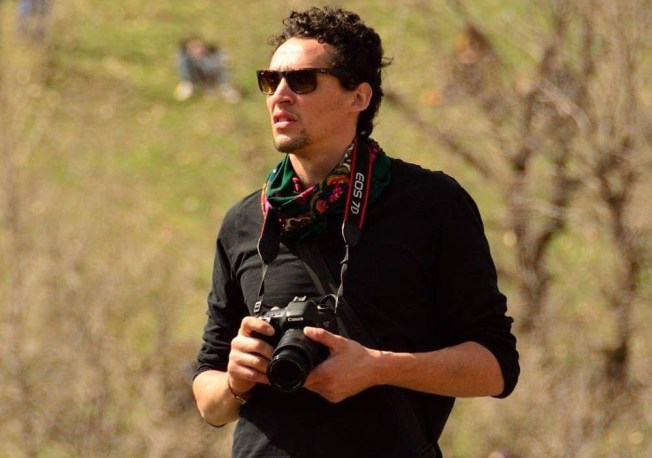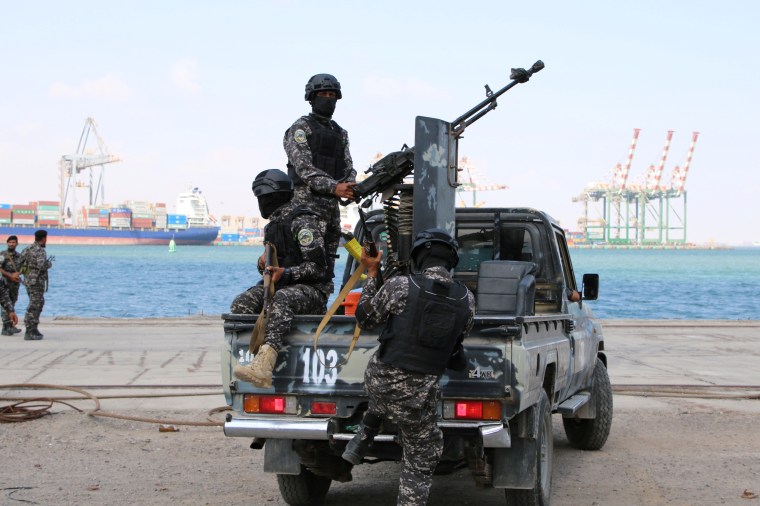On May 28, 2023, five armed soldiers and three police chiefs on the Yemeni island of Socotra arrested freelance journalist Quentin Müller and Sylvain Mercadier, co-founder and director of the independent Iraqi news website The Red Line, at their apartment, according to tweets by Müller and Mercadier, who communicated with CPJ via email. The authorities also confiscated the journalists’ passports, two laptops, two cameras, and several books.
The soldiers and police officers were affiliated with the Southern Transitional Council, a United Arab Emirates-backed secessionist group involved in Yemen’s civil war, which aims to establish an independent state in southern Yemen. The STC has been the de facto ruler of Socotra since April 2020.
At the central Socotra police station, officers insinuated that the request for their arrest came from “other Gulf states” and high-ranking officials who were not Yemeni, according to those tweets and Mercadier. The officers referenced the journalists’ reporting on Yemen, specifically Socotra, demanded the journalists disclose the names of their sources and reveal meeting places, and told the journalists that their reporting on Yemen did not sit well with those Gulf countries.

Officers questioned Müller about his August 2021 article regarding the UAE’s interference in Yemen and the brutality of its proxies, and an October 2021 Al Jazeera documentary about Socotra and the UAE’s attempts to gain control of the island, which features interviews with Müller, according to Mercadier.
The officers also said Müller’s photo had been circulating in WhatsApp groups involving individuals working in security coordination between the STC and those Gulf countries. Officers compelled the journalists to unlock their laptops and searched them and their cameras for interviews with political figures who were anti-UAE or anti-STC, Mercadier said.
Müller has extensively reported on the political tensions in Socotra and the broader Middle East in media outlets, including the French monthly newspaper Le Monde Diplomatique, the U.K. newspaper The Independent, and the French website Orient XXI, which denounced the arrest of the two journalists.
Mercadier has also reported on the region for outlets including the U.K. newspaper The Guardian, the London-based website Middle East Eye, and Orient XXI.
The journalists were placed under house arrest and questioned several times about their reporting between May 28 and June 1, according to Mercadier. On June 1, authorities returned the journalists’ equipment after requiring them to sign a document saying they had written politically sensitive articles that jeopardized the stability of Socotra without prior authorization from authorities.
On June 4, a national security officer affiliated with the STC pressured the journalists to leave the island, which they did, abandoning their reporting plans and returning to France, according to Mercadier. The officer presented it as “a sort of concern for our safety, but all they wanted was to prevent us from having any opportunity to work in Socotra. There was no danger to our safety apart from the local authorities,” Mercadier added.
“The French journalists were questioned in Socotra due to their lack of proper credentials,” Summer Ahmed, the STC’s U.S.-based representative, told CPJ via email. “We have advised them to register properly as journalists with the National Southern Media Authority (NSMA).”
The NSMA operates in all areas under STC control, including Socotra and the south of Yemen, and functions as an “arm of the STC,” Ahmed told CPJ.
Mercadier told CPJ that he believes their detention was “politically motivated,” adding that NSMA insists on being informed about all meetings and interviews before they occur, calling the request “drastic measures completely incompatible with the conduct of independent journalism.”
Following the arrest of the two journalists, NSMA issued a directive on June 7 urging all media outlets to register their outlets and journalistic employees. On June 13, a second directive urged foreign journalists and international media outlets to register and obtain licenses from NSMA before conducting any reporting activities.
Local journalists and press freedom advocates have named NSMA as one of the factors contributing to the deterioration of press freedom in Yemen. In September 2022, the Yemeni Journalists Syndicate denounced the NSMA’s decision to prohibit certain journalists from conducting interviews with specific media channels.
Journalists reporting in areas under the control of the STC have faced assault and prolonged detention, especially when they report on abuses allegedly committed by militias loyal to the STC or critically report on the UAE.
In August 2022, STC security forces detained freelance Yemeni journalist Ahmed Maher and his brother in Aden. Maher remains in custody, has endured harsh interrogations, and was banned multiple times from attending his own trial.
In February 2023, security forces affiliated with the STC took control of the Yemeni Journalists Syndicate’s headquarters in Aden and transferred control to a newly established STC entity known as the Southern Media and Journalists’ Syndicate, according to a statement by the syndicate. On June 9, the Yemeni Journalists Syndicate issued a statement that condemned the ongoing control of their headquarters by the STC and demanded its restoration.
On June 18, STC security forces arrested and detained journalist Akram Karem in Aden for criticizing the local authorities in the Al-Tawahi district and exposing corruption on his Facebook page. He was released on June 20 on the orders of the governor of Aden.
